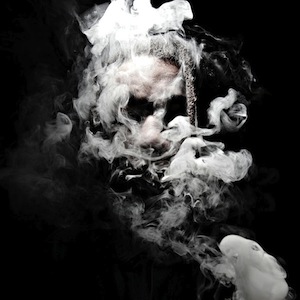How much does geography really play into an artist’s productions? Twenty-year-old Kamau Baaqi, aka Darling Farah, was born in Detroit, MI. He later immigrated to the United Arab Emirates, and now–in time for the release of his full-length debut, Body–he resides in London. Detroit and London are synonymous with well-trod sonic pallets, but the UAE is as remote in techno as it appears on a map. It’s easy enough to spot both Detroit’s steel-braced, utilitarian rhythms and London’s (or more broadly, the UK’s) shadowy dub textures filling Baaqi’s music. But what accounts for the rest of the sound? Is that the UAE? It’s a superficial question, and often what sets Darling Farah apart feels much more deep-seated than its surface-level consistencies. Body sounds like little else, and that includes most of Baaqi’s past work on Civil Music and Idiot Horse.
Darling Farah does a lot with a little. He wears his minimal inclinations on his sleeve, so to speak. Much of Body is driven by skeletal drum loops, poking up through the oppressive, smog-laden atmosphere while black industrial drones toil bleakly in the distance. Despite Body‘s atmospheric sophistication, many of the tracks only deploy a handful of textures and loops before subsiding short of the five-minute mark. The focus is often percussion. Pregnant negative space is put to good use, isolating the squishy, sonorous drum loops and letting them act as the gravitational center.
Opener “North” acts as a perfect mission statement. A scratchy, gothic drone slowly heaving in and out of silence over a chittering shaker before a loop of muffled hand drums arrive to seemingly just occupy the same space, and a gooey, Deepchord-esque bass groove ties everything together. Other than some crackling textures at its periphery, the track isn’t much more than variations on those elements before it’s over in four minutes. “Realised” follows “North” and it’s not much more than a bouncy, cartwheeling bass groove over a fleshy 4/4 rhythm while rhythmic, exhaling steam textures sound off out of notice before a barely-there industrial drone creeps up to wander around in the background.
Darling Farah’s pacing of each track is perfectly confined. It’s not hard to imagine Body stretched out with another fifteen minutes of the same stuff, but instead Baaqi does everything he’s going to do with a track’s disparate parts and then ends the thing instead of languishing. It makes for one of the easier to digest and immediate minimal tech albums this year. And next to something like Shifted’s Crossed Paths, whose tracks clock in between five and seven minutes on average, yet are perhaps even sparser than Darling Farah’s, Body is downright breezy. That’s not to boil the album down to its mathematical particulars, it’s only to say with Baaqi’s balance of percussive and textural intricacy and grander track motions, it gives a record that could otherwise be long-winded a welcoming momentous feel. Even on something like “Fortune,” which is barely three minutes of decaying, sputtering dub chords and a slowmotion caveman kick drum.
Then there are tracks like “All Eyes” and the title track, the latter of which extends to almost eight minutes, which show Darling Farah at his most complex and atmospherically defined. “Body” is a pounding, floor-friendly tech house swirl of ghostly vocal samples and rotting Gas-goes-disco synth rotations, building from its minimal foundations into an all-consuming haze a couple times over. “All Eyes,” on the other hand, shows Darling Farah’s dub techno impulses at their height. The track weaves some beautifully melodic classic dub chords around a sputtering, looping quick-step rhythm to form into a shuddering, dripping dance cut. A lot the album feels very much tuned to current UK techno, and on paper it’s not far off from the aforementioned Shifted or a number of artists gracing labels like Perc Trax, Modern Love, or many English transplants on Delsin. But, listening to Body, Baaqi’s approach feels wholly unique and unfamiliar from the moment it starts.

